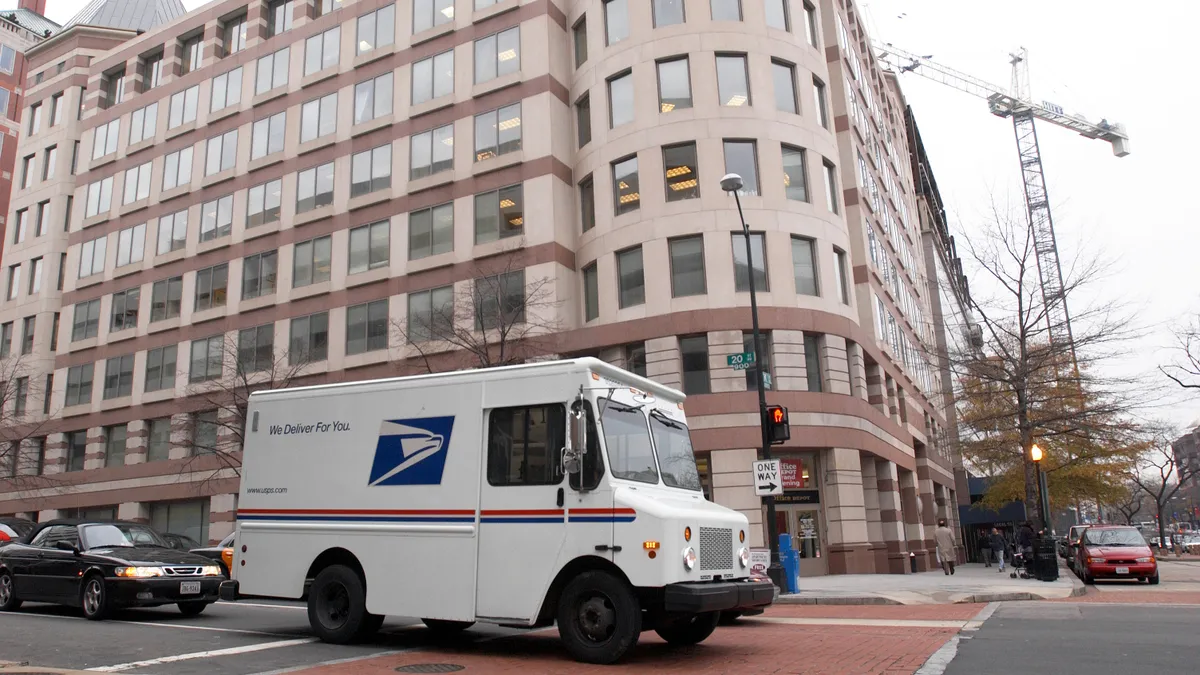Dive Brief:
- The U.S. Postal Service must resume late and extra truck trips from sorting facilities to delivery stations, ordered Washington, D.C., District Court Judge Emmet Sullivan Tuesday.
- "USPS personnel are instructed to perform late and extra trips to the maximum extent necessary to increase on-time mail deliveries, particularly for Election Mail. To be clear, late and extra trips should be performed to the same or greater degree than they were performed prior to July 2020 when doing so would increase on-time mail deliveries. Any prior communication that is inconsistent with this instruction should be disregarded," reads the judge's order
- USPS will comply with the order, according to spokesperson David Partenheimer. "We take all of our legal obligations very seriously," he said via email.
Dive Insight:
Late trips and extra trips have been at the center of the USPS controversy for most of Postmaster General Louis DeJoy's tenure. DeJoy has been dead-set on ending the practice — holding the opinion that they are not necessary in a well-run system.
"The policy was not to eliminate extra trips. It was to mitigate extra trips," said DeJoy in an August Senate hearing.
Postal workers say late and extra trips are a natural result of the inconsistent and somewhat unpredictable patterns of mail and especially parcel volume — exacerbated by the pandemic.
The trucking policy changes, along with other operational changes enacted by DeJoy and other USPS management since the change of leadership in May, caused a dip in on-time service of mail and parcels in July.
Since that August hearing, USPS has been reporting mail delivery performance information weekly showing some improvement. For the last month, on-time delivery for first-class mail has hovered around 86% — up from its lowest point below 80% in mid-July but down from well-above 90% in March before any changes set in. Parcel service information is not included in those disclosures.
A report from the office of the USPS Inspector General released last week concluded that DeJoy made roughly 60 changes to USPS operations with little attempt to gauge the operational impact. The IG also reported that inconsistent communication caused confusion, which further slowed deliveries. Parcel data was redacted from the IG report because it was deemed commercially sensitive.
Though the court order includes only explicit reference to election mail, supply chains and package delivery could benefit too. Resumption of extra and late truck trips could keep parcels flowing more freely through peak season and allow postal workers to restore their culture of getting all of the mail and parcels out every day — which several postal workers told Supply Chain Dive in August ended with DeJoy's changes.
Judge Sullivan ordered USPS leadership to alert all personnel who were previously informed of trucking changes that they are no longer in effect, no later than 9 a.m. Wednesday — the day after the order was issued.













